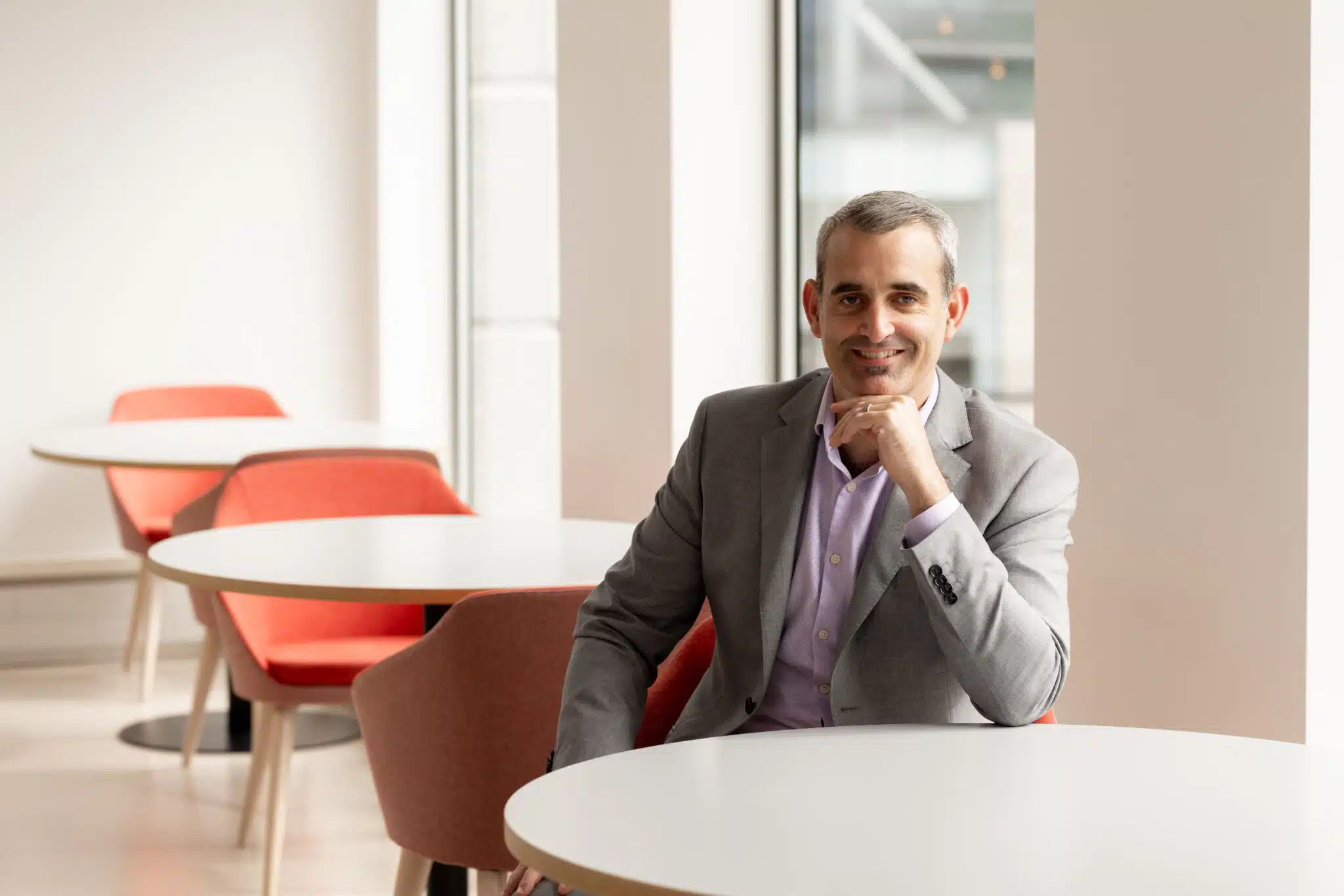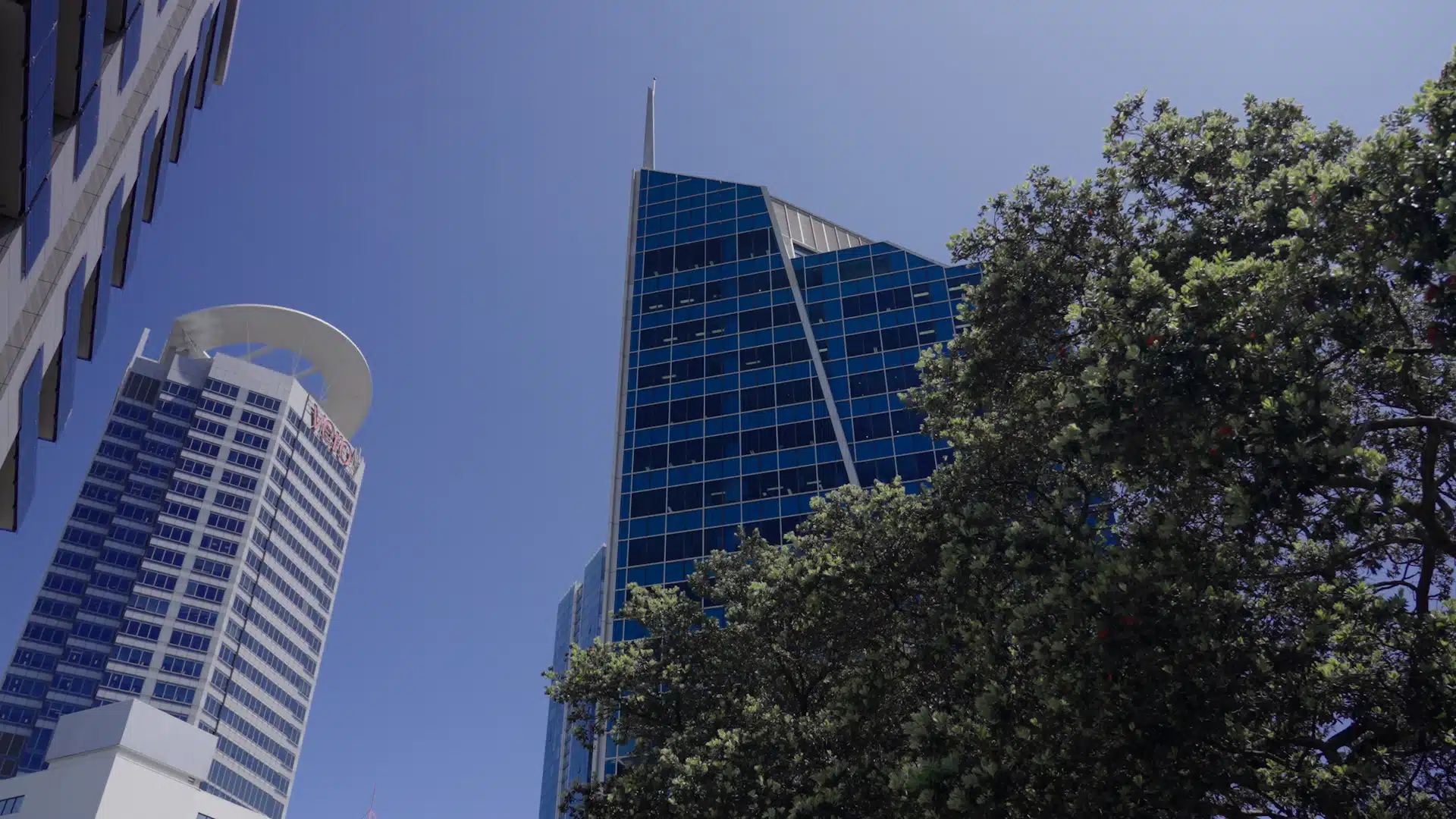How Findex NZ uses TMNZ to solve provisional tax challenges
The Situation: Delivering Proactive Tax Advisory
Jarod Chisholm is the Managing Partner of Tax Advisory at Findex New Zealand, one of the country’s leading accounting, tax advisory, and financial advisory firms. With 24 offices across New Zealand, Findex serves a diverse range of clients from listed companies to mum and dad investors, with a sweet spot in the entrepreneurial, high net worth, and mid-market space. Many of these clients are looking to grow, and they need smart solutions to manage their tax obligations without sacrificing that growth.
The Challenge: The Provisional Tax Pressure
When clients come to Findex to discuss their tax obligations, they often arrive with real concerns:
- Cashflow pressure: Many businesses don’t have the funds available on provisional tax due dates like , or they’d prefer to use that working capital to maximise and grow their business rather than tie it up with Inland Revenue.
- Uncertainty: Some clients aren’t sure what their actual tax liability will be because they’re waiting on settlements, sales projections, project completion or other big transactions to occur.
- Timing mismatches: Businesses may have transactions occurring at a later date but need to meet their tax obligations now.
- Growth constraints: When funds are paid to IRD early, that capital is locked away when it could be invested in business growth opportunities.
As Jarod puts it: “When managing tax, our clients have a lot of issues they face. Some face cashflow issues where they can’t afford to pay on the due date like 15 January . Some clients like to use the funds to maximise and grow their business, and that’s when TMNZ comes in.”
The Solution: A Smarter Way to Pay Provisional Tax
Findex has partnered with TMNZ since the early days of tax pooling in New Zealand. Here’s how TMNZ helps Findex deliver better outcomes for their clients:
- Payment flexibility: Clients can defer tax to a later date or pay it off in instalments when cashflow is tight, without risking IR penalties and interest.
- Cashflow management: Even clients who have the money to pay benefit from using TMNZ, because it gives them the option to draw funds back down, to support business growth.
- Rapid access to capital: When COVID hit, Findex clients had tax funds in TMNZ’s pool and were able to access that capital within three days to manage business uncertainty.
- Cost savings: Clients pay less than they would in IRD penalties and interest, with competitive rates that beat bank financing options.
- Proactive alerts: When a client misses a payment, Jarod receives an email immediately, allowing the team to be proactive in offering their clients smart payment options through TMNZ.
The Results: Reduced Risk & Client Growth
More than a decade into the partnership with TMNZ, Findex has been able to deliver tangible value in the following ways:
- Better client conversations: TMNZ gives Findex’s team a toolkit to have more meaningful, strategic discussions, not just compliance tick-boxes.
- Enabling business growth: Clients can reallocate funds to invest in opportunities as they arise, rather than having capital tied up with IRD.
- Stronger client relationships: The ability to solve cashflow problems and offer flexibility has helped Findex retain clients and stay ahead of competitors who don’t offer these solutions.
- Reduced stress: Clients sleep better knowing their tax obligations are covered and they have options if circumstances change or when they’re in slow sales period like over the holiday season, when tax is still due.
- Simplifying compliance: Integrations with accounting systems and proactive reporting makes it easier for the Findex team to manage client tax payments efficiently.
And there’s another layer. Findex clients know that when they work with TMNZ, they’re also giving back. TMNZ invests 100% of its profits into Whakatupu Aotearoa Foundation, supporting communities and the environment across New Zealand. For Jared, that shared commitment to purpose is another key reason for the long-term partnership.
Key Takeaway: Delivering Value Beyond Compliance
Tax doesn’t have to tie up capital or limit growth. Even when navigating reduced income, slower sales cycles or other seasonal challenges. By partnering with TMNZ, Findex has given their clients the flexibility to manage cashflow strategically paying tax on their terms, accessing funds when needed, and focusing on what matters most: building their businesses. For accountants, offering these solutions isn’t optional—it’s about delivering genuine value and staying relevant.
For more on how TMNZ’s solutions can help your business or clients, go here.
How Mitre 10 MEGA Dunedin unlocked provisional tax flexibility with smart solutions
The Situation: Rapid Growth & Retail Complexity
Duncan Rae is the Financial Controller at Mitre 10 MEGA Dunedin, overseeing the financial operations for this major retail operation, plus stores in Mosgiel and Wanaka. With around 250 staff at the Dunedin store alone, Mitre 10 MEGA Dunedin is a significant employer and a vital part of the local community. Duncan has been with the business for nearly 30 years, navigating the complexities of rapid growth and seasonal cashflow pressures.
The Challenge: Seasonal Cashflow vs Tax Obligations
Managing tax for a rapidly growing retail business came with several challenges for Duncan and his team:
- Rapid growth: As sales expanded quickly, tax obligations grew proportionally, creating pressure on working capital.
- Lumpy income streams: With extensive development projects alongside retail operations, income could be irregular. Settlements might be years apart, making it tricky to pay the right amount of provisional tax.
- Cash is king: In retail and property development, cashflow management is everything. Balancing tax payments with operational needs and growth investments required careful planning.
- Complexity: With multiple business arms and various payment methods, managing tax compliance across the group was becoming increasingly complex.
The Solution: Flexible Provisional Tax Payments
Duncan discovered TMNZ at an accountants’ conference in Queenstown several years ago. While initially cautious about paying tax to an organisation other than IRD, Duncan did his due diligence, speaking with other large companies who assured him TMNZ was legitimate and trustworthy.
The Results: Taking Control of Tax Dates
TMNZ provided Mitre 10 Dunedin with:
- Payment flexibility: The ability to pay tax when it best suited their business cashflow, not just on IRD’s timeline.
- Expert guidance: Access to tax specialists who understand the complexities of the industry.
- Easy refunds: When they occasionally overpaid tax, getting money back was incredibly simple, just a quick call and funds were back in their account within days.
- Peace of mind: Proactive reminders about tax deadlines and payment options, taking the stress out of tax compliance.
- Personal support: A dedicated team that knows their business and can be reached quickly by phone, email, or chat.
Key Takeaway: Managing Complex Cashflow
For business with complex cashflow patterns, or those experiencing rapid growth, or managing multiple income streams, tax flexibility isn’t just nice to have, it’s essential. By partnering with TMNZ, Mitre 10 MEGA Dunedin has gained the cashflow flexibility and expert support needed to navigate complex tax obligations with confidence, allowing them to focus on what they do best: serving their community and building for the future.
For more on how TMNZ’s solutions can help your business, go here.
Why the Worst Time Feels Like the Best Time to Invest
By Matt Edwards
Spring is here, and with it comes the usual talk of growth — of grass, of the economy, and hopefully, of Kiwi businesses.
But beneath the chatter lies a sobering truth: New Zealand’s productivity problem is as stubborn as ever. For decades, our output per hour worked has lagged behind nearly every other developed economy, leaving us close to last in the OECD rankings. If we want to maintain our standard of living and the social services we value, we can’t afford to carry on like this.

We’ve been here before. Decade after decade, we’ve prided ourselves on hard work while watching other countries outpace us in output per hour. That’s not a reflection of our people — it’s a reflection of how we invest (or don’t) in the assets, technology, and skills that drive long-term productivity.
The problem is becoming more acute now. Over the coming decades, New Zealand faces growing unfunded liabilities as our population ages, people retire, and healthcare and superannuation costs rise. The obvious lever to address this is taxation, and ideas like the introduction of a capital gains tax to raise more revenue continue to be debated.
The degree to which increased taxation has a negative impact on a country’s overall productivity is a hotly contested question. There are certainly strong arguments that taxes on capital gains can disincentivise investment and entrepreneurship — two things critical to lifting productivity. These are concerns that smart tax policy can overcome. What most people can agree on is that higher productivity will drive economic growth, which in turn drives higher tax receipts.
Higher productivity will lift the standard of living in New Zealand and help fund social obligations into the future. The crux of the problem is: how do we do it?
The Bottom of the Cycle Is the Best Time to Invest
It may sound counterintuitive when many businesses are feeling the squeeze, but the bottom of the economic cycle is the right time for businesses to invest in the future. Adversity and tough conditions create the perfect environment for thinking about how to drive efficiency, deliver more value, and create a more productive operation.
Businesses that are forward-thinking and playing a long game will emerge from the current downturn leaner, faster, and better prepared to capitalise on the inevitable economic upswing.
This isn’t blue-sky thinking. We can look to one of New Zealand’s most successful and important industries — dairy — as an illustration. Investment in technology as well as improvements in breeding, pasture management, and herd practices have driven continuous increases in yield and farm productivity over many decades.
A forward-thinking dairy operation does not stop investing because milk solid prices are low. They continue to make sustainable investments with a long-term view that when prices rise, they will reap the reward — as we are currently seeing in the dairy industry.
Waiting for ’certainty’ before investing is a trap. By the time certainty arrives, opportunities are gone and the market has already moved. The real winners are the ones who keep moving forward when everyone else freezes. There is arguably more opportunity in a tough market for businesses that have a long-term view.
Investment Boost: Good, but Not Enough
The Government is acutely aware of New Zealand’s productivity issue and the challenges it creates. The Investment Boost scheme, designed to lift productivity by encouraging investment in new technology, machinery, and equipment, is a clear indicator of this.
The scheme, which allows quicker depreciation of capital investments, is essentially a cashflow tool — lowering tax obligations and increasing cash available for investment. It’s a great idea, but the immediate impact requires a business to be operating profitably. If a business is in losses or at an early stage, the benefit is not immediate.
Policy nudges are good, but to really yield a productivity lift there needs to be a direct, multi-decade, and non-partisan push for higher productivity that touches many more areas than just tax policy.
Finland is a good example of this, where productivity gains have become central to Government policy and, arguably, part of the national culture. The Finnish Government’s productivity strategy combines high R&D spending, skills development, digital adoption, labour force participation policies, and the ‘green transition’. Their approach is not just about cutting costs but about raising value-added per worker and per firm through innovation, education, and sustainable competitiveness.
The Long Game Matters
Investing in plant, machinery, technology, or staff training isn’t about quick wins. It’s about building the foundation for sustained, consistent growth over 10 years or more. It’s about breaking free from New Zealand’s addiction to short-termism — an addiction that keeps us underperforming while our competitors surge ahead.
Yes, it’s uncomfortable to spend when your P&L is bleeding. But the alternative is worse: stagnation, the slow road to decline.
Access to affordable working capital is often said to be the main barrier to small and medium businesses investing to increase capacity or productivity.
Tax Pooling as a Productivity Driver
A tool that is still grossly underutilised by New Zealand businesses is tax pooling. Although it doesn’t have a catchy name like Investment Boost, tax pooling is a fantastic example of innovative tax policy that can drive long-term benefits for business and productivity.
The policy allows businesses to defer or smooth out provisional tax payments for up to 22 months without incurring penalties or interest. It supports tax compliance but also frees up working capital.
That capital can instead be directed into new equipment, technology, or staff training — exactly the kind of investments that can lead to productivity uplift.
Additionally, unlike bank loans, tax pooling requires no security, doesn’t affect bank covenants, and avoids lengthy approval processes. It’s effectively hidden-in-plain-sight access to capital, and the cost is often materially cheaper than other funding sources.
The Ball Is in Our Court
Ultimately, Government policy alone will not solve New Zealand’s productivity challenge. It is an important catalyst, but business leaders need to adopt a long-term view, and mediocrity needs to be consigned to the history books.
The decisions we make now as business leaders — in what feels like the worst of times — will decide which businesses thrive when the cycle turns.
So, ask yourself: are you positioning your business to be ready for the upswing, or are you waiting on the sidelines while others quietly invest and get ahead?
Because here’s the reality: if we don’t change how we invest, we don’t change our productivity. And if we don’t change our productivity, we don’t secure our future.
Matt Edwards is CEO of TMNZ and has grown successful FinTech business in the UK.
Charting Our AI Course: TMNZ's Journey
By Eric Troebner
As Chief Technology Officer at TMNZ, I’ve had the privilege of being in the cockpit of our exciting artificial intelligence (AI) transformation. When we first started talking about AI around the time that ChatGPT was released, the conversations were filled with equal parts excitement and uncertainty. So, I’m thrilled to share how we’ve turned that initial curiosity into some real, measurable impact across our entire business.

Building Our Launch Pad: Getting the Fundamentals Right
The temptation with any new technology is to dive headfirst into the flashiest applications. But our approach has been different from day one. We knew that sustainable AI adoption required rock-solid foundations, so we spent our first year building what I like to call our “AI launch pad.”
This wasn’t glamorous work, but it was essential. We completely overhauled our security framework, implementing stronger role-based access controls that ensure every team member has exactly the right level of system access. We also improved data classification and governance protocols. Every piece of company and client data remains securely within our infrastructure, and no AI model ever touches our sensitive information for training purposes.
The technical infrastructure we built gives our teams access to a carefully curated ecosystem of AI models, from OpenAI and Azure OpenAI to Anthropic Claude, Gemini, and Mistral. But we took it one step further: we created an internal AI portal where every single employee can safely experiment with these powerful tools. Whether it’s document analysis, image generation, or building custom agents, our people can explore AI’s potential within secure, compliant boundaries.
Perhaps most importantly, we implemented modern agent orchestration using platforms like n8n. This means both our technical and non-technical staff can create sophisticated automations without writing code. This launch pad has democratised AI development across our organisation.
Pre-Flight Checks: Education and Experimentation
Once our technical foundation was solid, we moved into what I call our “pre-flight” phase. This was all about preparation, education, and focused experimentation.
At a recent strategy all hands meeting we re-iterated an important truth for everyone: None of us are AI experts, and that is perfectly fine.
This humility is one of our secret weapons. Instead of pretending to know all the answers, we are working to create an environment where curiosity thrives. We run hands-on workshops and proof of concepts for every team, from operations to engineering to sales and marketing.
Each session focused on one key question: what AI application would make the biggest difference to your daily work? We actively encouraged teams to focus solely on what would make the largest impact in their daily workflows – no blue-sky thinking unless it solves their biggest bottleneck.
The results are remarkable. Teams didn’t just brainstorm abstract possibilities – they mapped out specific AI agents that could solve their biggest bottlenecks. Within a month of these workshops, over half our teams had working proof-of-concepts deployed. In just the first four weeks, we tracked over 200 hours of productivity gains across the company, having invested only about 20 hours to build these solutions.
Achieving Liftoff: Real Impact Across the Business
The transition from experimentation to production happened faster than we anticipated, and the results speak for themselves. Today, every business unit at TMNZ has secure AI tooling available to build into their daily workflows. Our product and engineering teams have accelerated discovery, analysis, development and testing, while our sales, marketing, finance, and customer support teams benefit from the first iteration of AI agents that handle everything from content creation to data analysis.
The numbers tell an impressive story. We’ve achieved an estimated 2 percent business-wide productivity uplift from our initial proof-of-concepts alone – equivalent to gaining a full-time employee. These aren’t just theoretical gains; they’re measurable improvements that allow us to do more with less and grow TMNZ.
To be able to speed up the delivery of practical results, proofs of concept at TMNZ are treated as if they are already in production. This allows us to quickly assess effectiveness, adjust on the fly, and confidently decide where to invest further resources and scale solutions.
Landing Safely: Governance and Responsibility
Success with AI isn’t just about speed and efficiency, it’s about doing things responsibly. Our “landing” phase focuses on sustainable scaling while maintaining the highest standards of ethics and governance.
We’ve embedded human oversight into every human-facing AI output – it’s part of our policy to protect both our clients and our reputation. Our practical and clear-cut AI policy ensures that only approved tools run on approved infrastructure, with clear guidelines around confidentiality and responsible usage.
Continuous education remains a cornerstone of this approach. Every new team member receives foundational training on AI terminology, data privacy, and risk management. We’re also building partnerships across organisations that are on the same journey as well as technology partners to enhance our governance frameworks and maintain our leadership in responsible Fintech AI.
Education and training is a true team effort and I am lucky to have highly capable and motivated members of my team and across TMNZ who deliver lunch & learn sessions, present to everyone the emerging AI phishing risks and champion innovative projects with partners.
The Journey Continues
What really excites me about our AI journey is that we’re just getting started. As part of our next phase, we are committed to sharing our learnings with the broader New Zealand business community because we believe AI’s greatest potential lies in collaborative exploration with our partners and customers.
For any business considering their own AI journey, my advice is simple: invest time in getting your fundamentals right, create space for genuine team-driven experimentation, and stay flexible as you learn. The destination matters less than building the capability to navigate whatever comes next.
Here is an outline of the topics we are going to share over the coming months:
- Practical AI Foundations: Policies, Security, Tech Stack
- Managing your AI Agents like staff members
- Shifting to agentic AI
- Avoiding the Number 8 Wire trap
- Practical low-cost AI setup for NZ SMEs
- AI for Accountants and Tax Professionals in NZ
To learn more about TMNZ’s technology innovation for clients, go here.



